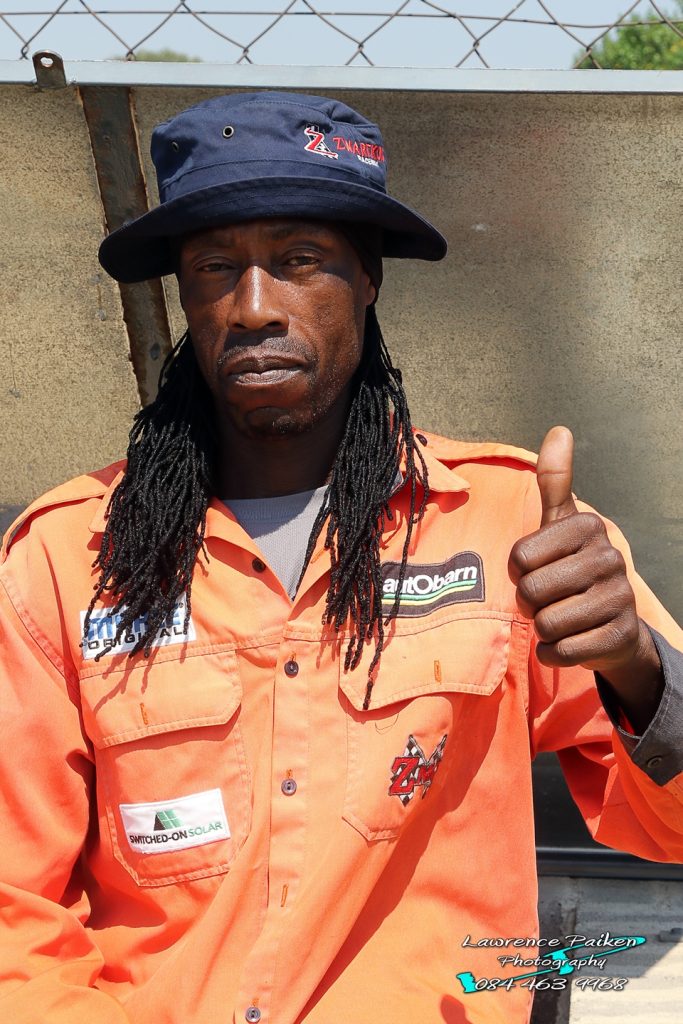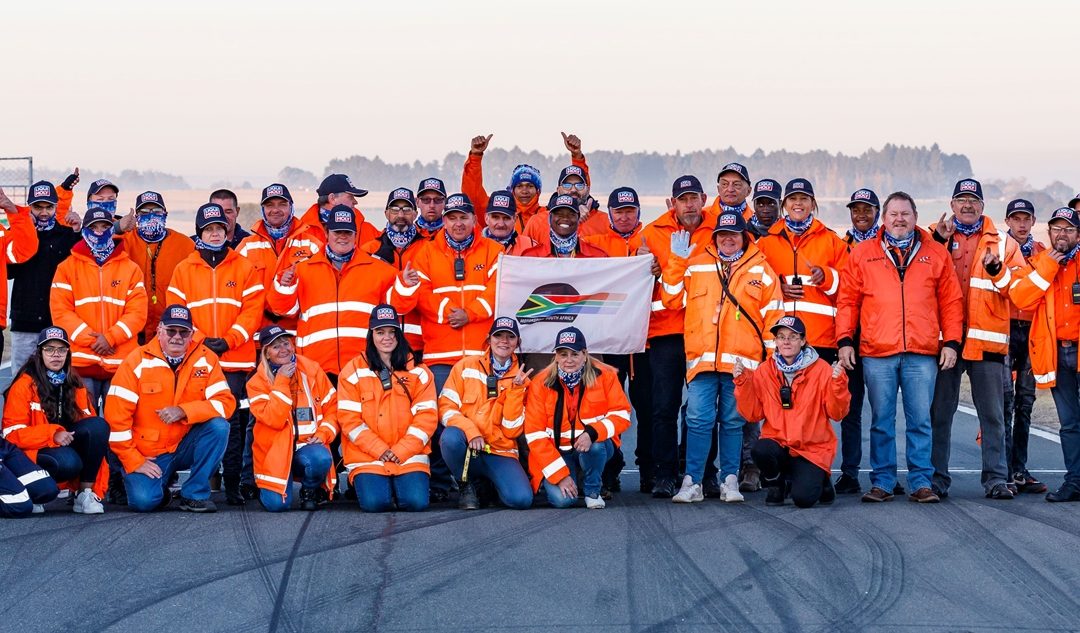For motorsport fans, it is usually all eyes on the track, the cars, the bikes and the action. The excitement in the stands is palpable as engines roar and competitors give it their all for their supporters.
Have you ever wondered though how things run smoothly, how accidents and injuries are avoided in this fast-paced environment?
Motorsport SA CEO Adrian Scholtz says amongst the most important people on the track are in fact the marshals. Marshalling is primarily done by volunteers and it is an ideal way for anyone who loves motorsport to get involved in the action and really make a difference. “We place so much value on these volunteers and are urgently looking to attract young blood into the sport. Young people like Michael Sepeng – one of the marshals at Zwartkops Raceway – represent the future face of marshalling,” he says.
Marshals have an enormous responsibility and an integral one when it comes to safety. They are responsible for the safety of motorsport competitors and are stationed at various points around the racetrack to assist them in case of any accidents, track issues or mechanical problems.
According to Scholtz, “Marshals are often the ‘first responders’. They also help to keep pit and track areas clean and safe, maintain track appearance and functionality and report any concerns to race control or track management.” Schultz Swanepoel, the Chief Marshal at Zwartkops, agrees, adding how crucial their role is. “You cannot run an event without them. What has enhanced marshalling tremendously from the early days are improvements such as electronic timing, number boards, LED lights and messaging apps such as WhatsApp,” he says.
Scholtz explains that not all marshals are the same either. There are various categories of marshals – incident, flag, fire and observer. They all work together as teams on various corners. A Post Chief is in charge of a corner.
“Motorsport SA has regulations in place pertaining to safety and these are the responsibility of the Clerk of Course, who is in overall charge of the event, much like a referee in the likes of rugby and soccer. He/she issues instructions to the marshals via the Chief Marshal and therefore the Clerk of Course and Chief Marshal must always be in contact with one another.
“All marshals need to be trained to an acceptable standard and are graded as such, from Grade 1 to 10 in the case of circuit racing, depending on experience and effectiveness,” he adds.
Meet Michael
With a love for motorcycles and karting, Michael Sepeng is at his most content among the other marshals at Zwartkops Raceway. He came to Johannesburg as the breadwinner for his extended family and was fortunate to land a job at the racetrack. Michael’s journey in marshalling began at other circuits around 2006 before being taken on by Zwartkops Raceway. The highlight of motorsport marshalling for him is that every day is different.

“There is something exciting happening every day. Some days it’s the little Bambino karting class racing and then it’s the experienced guys who go full speed! It changes all the time. There is never a dull moment next to the racetrack.”
A marshal has to be “fresh and vigilant” on race day, Michael says. The sport carries inherent risks as an accident can happen at any time, so it can actually be extremely stressful at times.
“I have to be there for the racers, keep my eyes open and make sure that I see if anything is wrong, for example, a loose part or tyre. If I spot something wrong I can warn the next marshal to flag the racer down and let them know.
“Everything happens very fast on the track. For each karting race there are a minimum of about 10 marshals, made up of Zwartkops regulars and volunteer marshals from other tracks.
“Bikes and karts are my favourite – they look dangerous but are my absolute best!”
Scholtz jumps in here to add that there is a big element of psychological support marshals can offer participants.
“Sometimes they can be on the receiving end of drivers’ frustrations but the show must go on so the marshals often play a role in calming tense situations and getting competitors back on track following an incident.”
Michael has experienced having to ‘talk drivers down’. He explains that “Yes, drivers can get angry if something goes wrong during the race. Our job is to make sure they remain calm and safe and that everyone enjoys the race.”
He adds that marshals are trained to offer support to the medical crew at the scene of an accident and also have to ensure spectators are kept at a safe distance and don’t get in the way of the racing.
“Marshalling keeps your mind on top form and you’re continually learning. You have to think fast. We need youngsters to get involved as they’re fit and sharp and full of energy.”
Scholtz concludes by saying that any able-bodied person can volunteer to become a marshal and stresses MSA’s drive to attract more young talent.
“What follows is training by experienced marshals in areas such as flags, fire and incident marshalling. The minimum age is 16 for junior marshals (with parental consent) and 18 and above for regular marshals.”
Find out more at the Motorsport SA website – www.motorsport.co.za
Compiled on behalf of MSA by Cathy Findley PR

